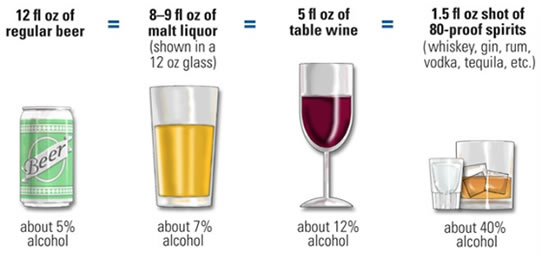The study found thinning in areas of the brain important for memory, language, awareness, consciousness and attention.
Binge drinking of alcohol is linked to brain damage in young people, research finds.
Binge drinking is defined in the US as four or more standard alcoholic drinks for women or five or more for men in two hours.
Using alcohol in this way was linked to thinning in areas of the brain important for memory, language, awareness, consciousness and attention.
For example, binge drinking is associated with problems learning new words in young people.
This research backs up studies that have also linked moderate alcohol intake in adults to brain damage.
Moderate intake is defined in the US as between 7 and 10 standard drinks per week.
Here are examples of one standard drink in the US:

Dr Anita Cservenka, who led the study, said:
“Adolescence is a time when the brain still matures including not only biological development but also maturation of psychosocial behaviours.
Given the increase of binge and heavy drinking in young people, understanding the effects of consuming large quantities of alcohol on neural development and the impact on cognitive skills is very important.”
The conclusions come from a review of studies on the link between alcohol and brain damage.
Along with thinner brains, binge drinkers also have worse memories, the studies found.
Dr Cservenka explained:
“We looked at six areas to determine the deleterious impact of heavy drinking on brain response, namely: response inhibition, working memory, verbal learning and memory, decision making and reward processing, alcohol cue reactivity, and socio-cognitive/socio-emotional processing.”
Dr Cservenka said:
“These brain alterations, as a result of heavy alcohol use during adolescence and young adulthood, could result in increased risk of developing an alcohol use disorder later on in life.
It is therefore important to continue raising awareness of the risks of binge drinking and to promote future research in this area.
Our review provides a useful basis to determine the areas that require further attention.”
The study was published in the journal Frontiers in Psychology (Cservenka & Brumback, 2017).

